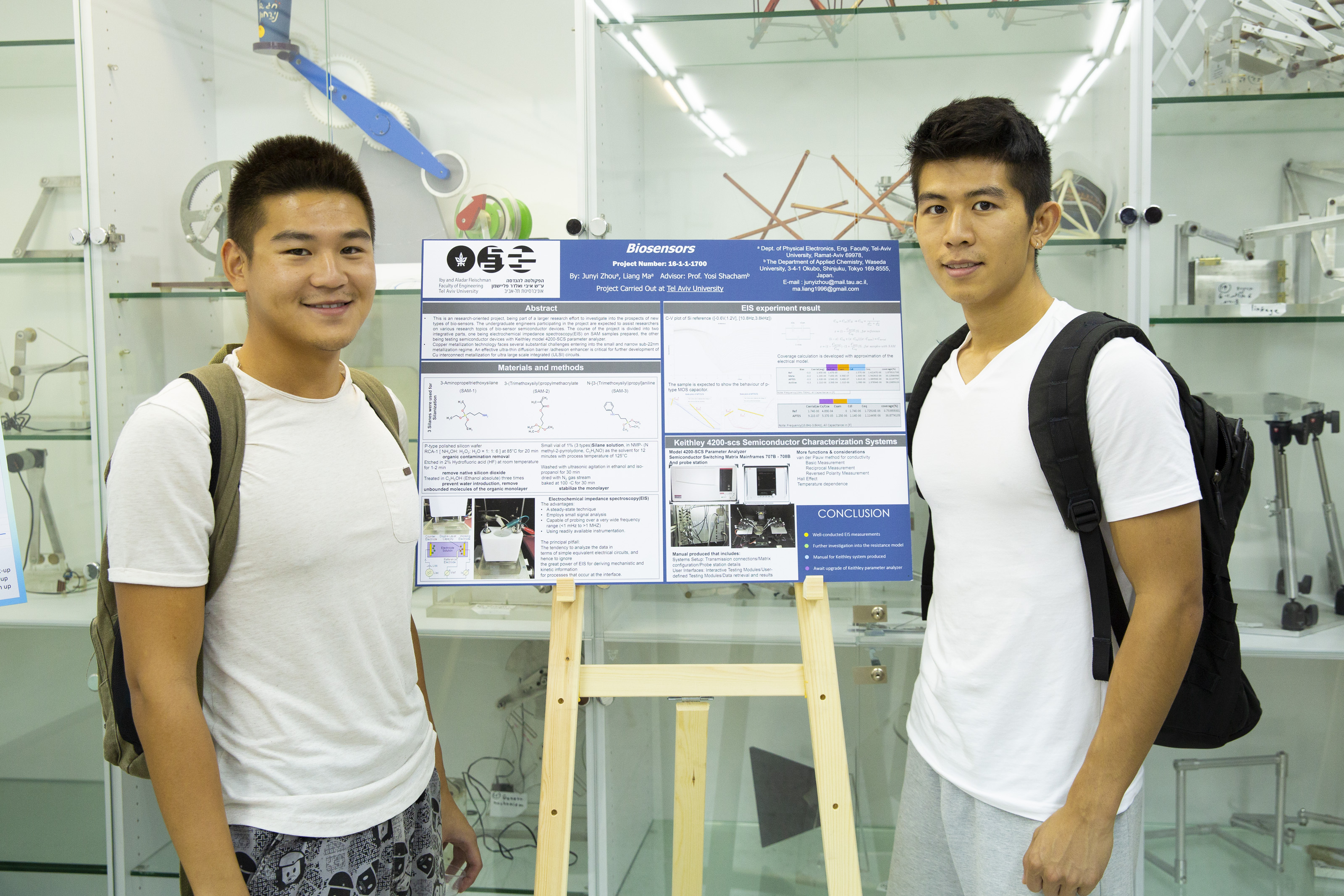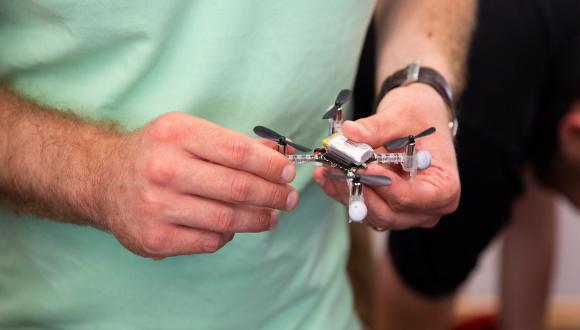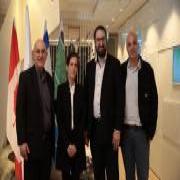Electricity in the air
Finals of students' projects at the School of Electrical Engineering
On June 12, 2018 students from the School of Electrical Engineering gathered together to present their final projects, demonstrating the abilities they had acquired at TAU's Faculty of Engineering. Students drew their motivation for the various projects from real needs they had encountered around them, and a desire to devise the most creative solutions.
The event was attended by Prof. Yossi Rosenwaks, Dean of the Faculty of Engineering, Prof. Mark Shtaif, Head of the School of Electrical Engineering, Dr. Ofer Amrani, Academic Supervisor of the final projects in Electrical Engineering, and Jacob Fainguelernt, Chief Engineer and organizer of the event. Mr. Yinon Bracha, former CEO of PrimeSense, gave a riveting lecture on 'The Engineer in the World of the Future' – what an engineer must do in order to succeed in the future world, which is in fact already here, where change itself constantly accelerates. At the end of the event the judges announced the three winners:
First place: A novel system for human-computer interaction
Liad Levi, Daniel Toma, fourth year; Supervisors: Dr. Jason Friedman and Dr. Constantin Sonkin
The product is intended to assist in the rehabilitation of children with motor disabilities and people with injuries in the upper spine. The patient wears acceleration sensors on his shoulders, and data is delivered to a small computer that processes the information to read the patient's movements and sends out commands to a robot that can go left or right and move its arms. In this way a fun game is incorporated into the rehabilitation process. The project was carried out in collaboration with BrainBoost at the Sagol School of Neuroscience.
Inspiration: "We looked for a project in signal processing, and chose this one because it can help people. We are interested in the next stage of product development: reading brain activity, so that the device may also help people who cannot move at all."
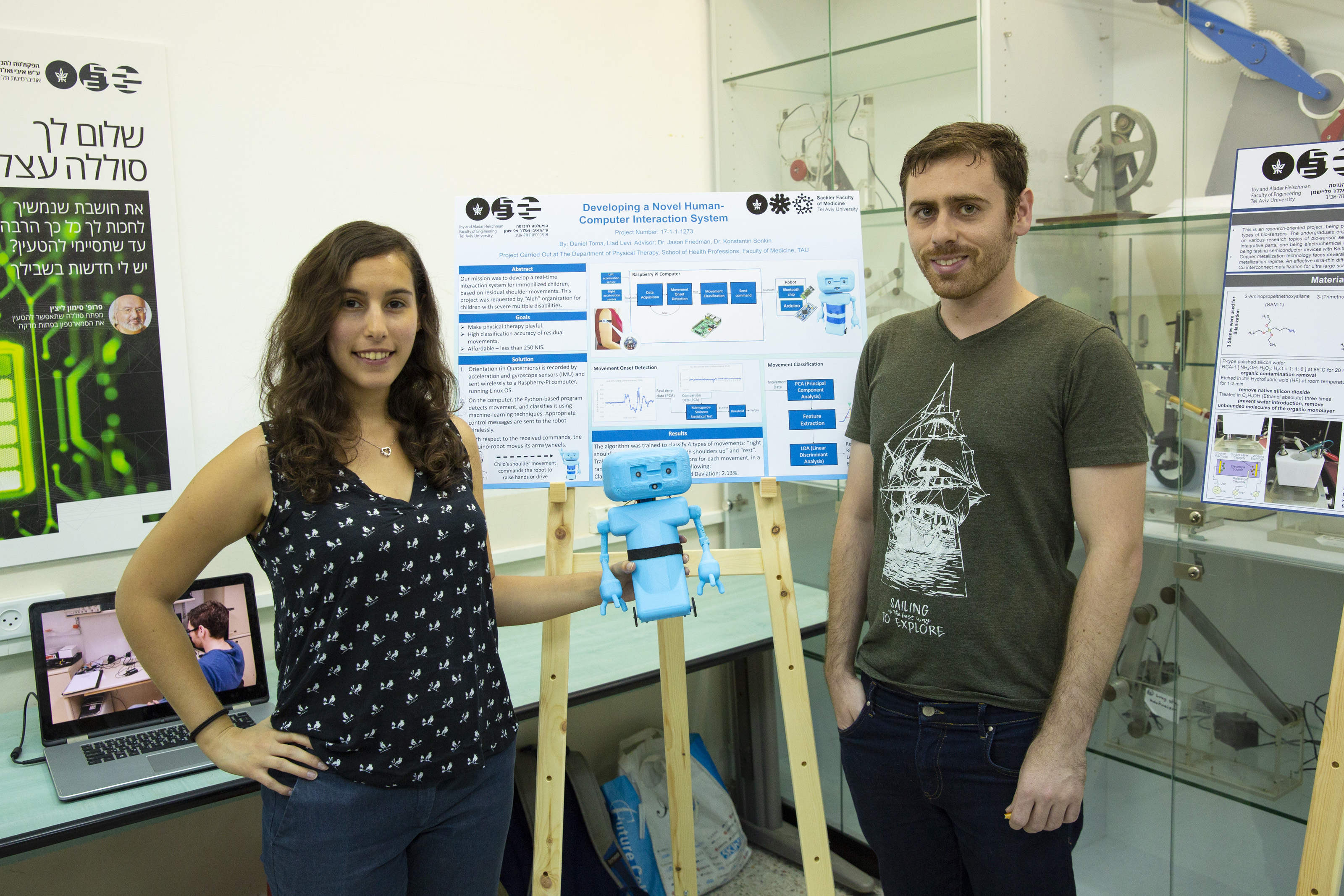
Second place: Autonomous nano-drones indoor navigation system based on motion-capturing positioning control
Yotam Gani, Orel Ben Yishai, 4th year; Supervisor: Jonathan Mendel
The system, based on a tracking mechanism, enables autonomous motion and navigation control in a closed space for a swarm of nano-drones. The system consists of several elements: central software developed and running in the ROS (Robot Operating System) environment; CrazyFile nano-drones developed in an Open source environment; and a closed OptiTrack tracking system based on six IR cameras and tracking software. The system will serve as an R&D platform for studying and developing advanced motion algorithms for drones. At the same time, it can provide many practical solutions for autonomous navigation in a closed space, such as autonomous stock management in logistic centers and large warehouses. Products of the project included accurate autonomous flight of a swarm of drones, including advanced applications like target tracking and collision prevention.
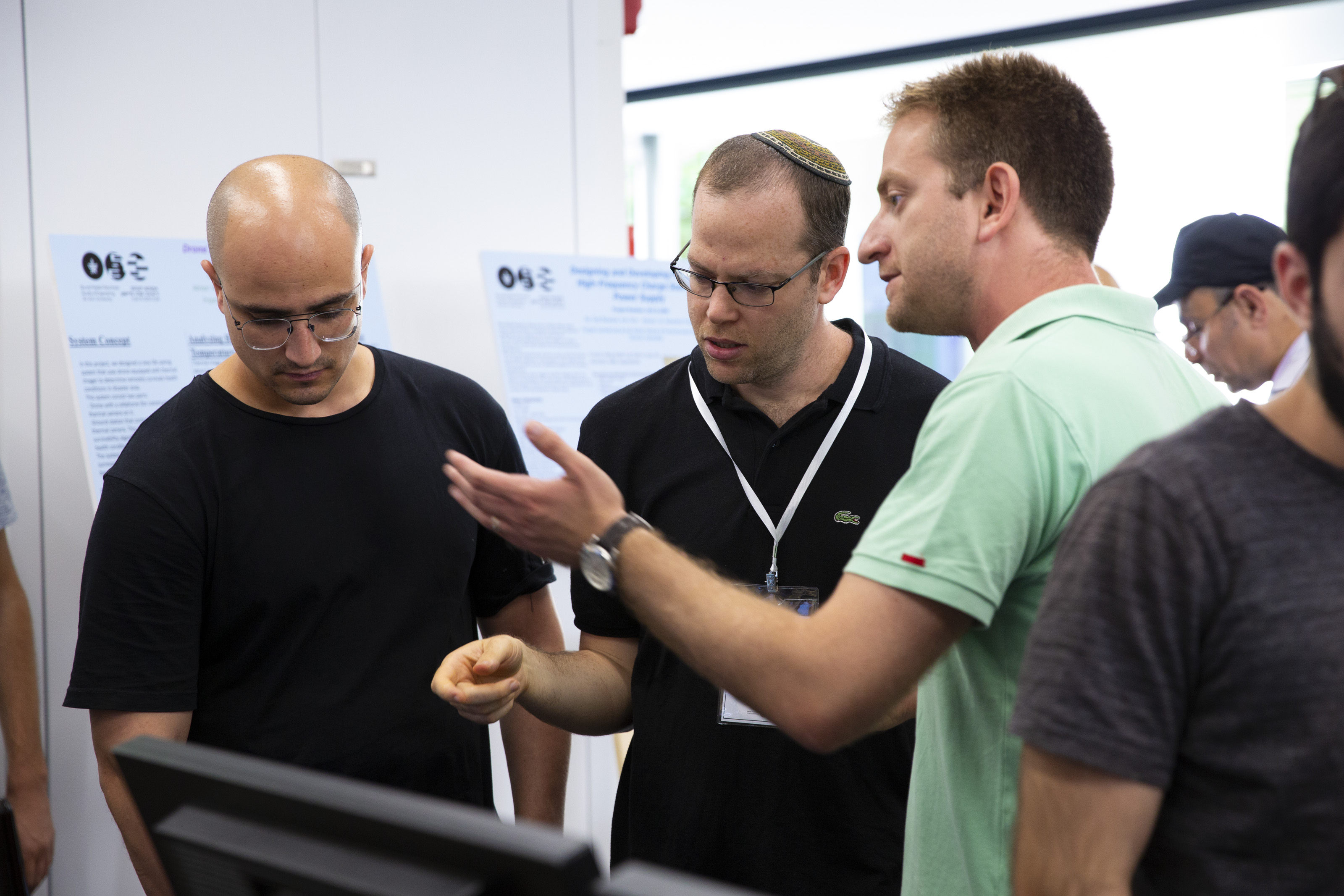
Third place – Biosensors
Junyi Zhou, Liang Ma, the international program; Supervisor: Prof. Yosi Shacham
This research project is part of a larger effort to investigate the potential of new types of biosensors. Asked to assist researchers studying different kinds of materials, such as metals, insulators and silicon, the students conducted two types of electrical tests: EIS (Electrochemical Impedance Spectroscopy) of self-assembled monolayers and examination of examine semiconductor devices with a Keithley 4200-SCS Analyzer.
Inspiration: the need to develop a simple and effective method for monitoring self-assembled monolayers for both research and industry.
